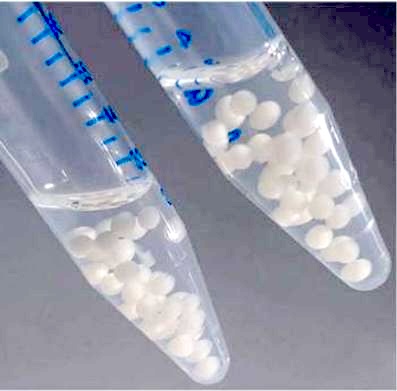 Cleanzine: your weekly cleaning and hygiene industry newsletter 10th July 2025 Issue no. 1170
Cleanzine: your weekly cleaning and hygiene industry newsletter 10th July 2025 Issue no. 1170
Your industry news - first
The original and best - for over 20 years!
We strongly recommend viewing Cleanzine full size in your web browser. Click our masthead above to visit our website version.
Plastic-eating bacteria turn waste into useful starting materials for other products
 Mountains of used plastic bottles get thrown away every day, but microbes could potentially tackle this problem. Now, researchers in ACS Central Science report that they've developed a plastic-eating E. coli that can efficiently turn polyethylene terephthalate (PET) waste into adipic acid, which is used to make nylon materials, drugs and fragrances.
Mountains of used plastic bottles get thrown away every day, but microbes could potentially tackle this problem. Now, researchers in ACS Central Science report that they've developed a plastic-eating E. coli that can efficiently turn polyethylene terephthalate (PET) waste into adipic acid, which is used to make nylon materials, drugs and fragrances.
Previously, a team of researchers including Stephen Wallace engineered a strain of E. coli to transform the main component in old PET bottles, terephthalic acid, into something tastier and more valuable: the vanilla flavour compound vanillin.
At the same time, other researchers engineered microbes to metabolise terephthalic acid into a variety of small molecules, including short acids.
So, Wallace and a new team from the University of Edinburgh wanted to expand E. coli's biosynthetic pathways to include the metabolism of terephthalic acid into adipic acid, a feedstock for many everyday products that's typically generated from fossil fuels using energy-intensive processes.
The team developed a new E. coli strain that produced enzymes that could transform terephthalic acid into compounds such as muconic acid and adipic acid. Then, to transform the muconic acid into adipic acid, they used a second type of E. coli, which produced hydrogen gas, and a palladium catalyst.
In experiments, the team found that attaching the engineered microbial cells to alginate hydrogel beads improved their efficiency, and up to 79% of the terephthalic acid was converted into adipic acid. Using real-world samples of terephthalic acid from a discarded bottle and a coating taken from waste packaging labels, the engineered E. coli system efficiently produced adipic acid. In the future, the researchers say they will look for pathways to biosynthesize additional higher-value products.
The authors acknowledge funding from the Carnegie Trust for the Universities of Scotland; the Industrial Biotechnology Innovation Centre; a Future Leaders Fellowship from UK Research and Innovation; and an Engineering and Physical Sciences Research Council Sustainable Manufacturing grant.
9th November 2023







